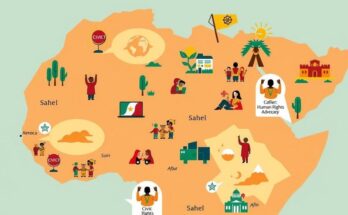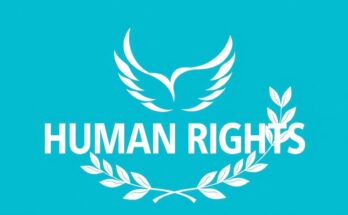In a troubling turn of events, Costa Rica has emerged as a stopover for US deportees, including many minors and families, as the Trump administration enhances its deportation activities. A recent flight carrying 135 deportees from various nations is set to arrive in Costa Rica, with half being children. Once they arrive, migrants will be transferred to a remote holding facility near the Panama border, awaiting repatriation for up to 30 days, funded by the US government.
This arrangement stems from a deal made during Secretary of State Marco Rubio’s recent visit to Costa Rica, echoing similar pacts across Latin America. However, the use of third countries as deportation points has drawn significant criticism from human rights advocates. With concerns for asylum seekers and the screening process for deportees, many are questioning the safety and conditions they will face.
Costa Rican President Rodrigo Chaves explained the country’s involvement as an act of support for its powerful neighbour to the north, amidst pressures from Trump to facilitate deportations under threats of tariffs or sanctions. Panama was the first country to accept deportees, housing them in guarded hotels, while Costa Rica aims to avoid such scenarios by ensuring rights protection even under challenging circumstances.
The recent flight from San Diego mainly involves families, including 65 children and two pregnant women. Badilla noted that most deportees reportedly consented to return voluntarily. Should they refuse, Costa Rica is prepared to provide refuge or collaborate with the UN’s International Organization for Migration (IOM) to arrange travel to other countries.
“Costa Rica is a country that guarantees human rights,” Badilla affirmed, expressing commitment to ensuring deportees are returned to safe environments. Despite government assurances, the facility used for detention has faced scrutiny for past conditions, where migrants felt imprisoned in cramped settings. The government insists improvements have been made, but journalists remain barred from accessing the site.
The IOM stated its role does not involve detaining individuals, emphasising its commitment to humanitarian support. It underlines the necessity of treating all migrants with dignity and adhering to international standards, fostering alternative solutions for those unable to return voluntarily.
Costa Rica has become a transit country for US deportees, including vulnerable families and minors, amidst escalating deportation efforts by the Trump administration. Migrants are held in a facility before being returned to their home countries, raising human rights concerns regarding their treatment and detention conditions. Despite assurances of safety, past criticisms about holding facilities persist.
Costa Rica is now positioning itself as a temporary holding ground for deported migrants, amidst growing concerns over human rights and the treatment of detainees. After a controversial arrangement with the Trump administration, many deportees face uncertain futures in facilities that have been critiqued for their conditions. While officials assert commitments to guarantee rights and safety, the overall approach raises significant ethical questions about the treatment of vulnerable groups.
Original Source: apnews.com



